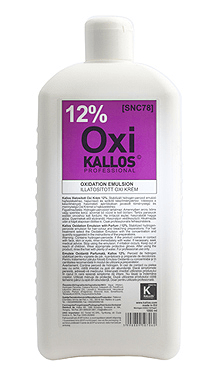So far, the information I have as to the ideal setup is limited since I just started, but results look pretty promising and I feel this is definitely something that a lot of users would find helpful for their yellowed caps/cases.
One of the more interesting concepts I'd heard is that hydrogen peroxide isn't actually needed at all and that oxiclean alone will work. Peroxide gets kind of expensive if you are wanting to do an entire case and it has to sit in a few gallons of it to cover evenly. I'd read about making it into more of a paste, but that seems like unnecessary risk of uneven whitening sometimes referred to as "blooming" as opposed to a homogenous bath. I'd heard 3% works just as well as 30% too, I imagine it just goes slower with 3%. I only have access to 3% at the moment, but will probably try some stronger stuff later down the line.
I thought it would be ideal to be able to mix my own concentrations of hydrogen peroxide and wondered if there was an anydrous form (which I wasn't really expecting to find since H2O2 is pretty much just water with an extra hydrogen, so subtracting the water molecule wouldn't leave much, but it turns out there is something that can be used to make it: Sodium Percarbonate, and I was somewhat surprised to find out that is the active ingredient in oxiclean, which explains why oxiclean alone might work for this. Apparently a fully saturated oxiclean solution is the equivalent to about 3% Hydrogen Peroxide, so it's not like it's any more concentrated, but should be a lot cheaper to make a decent quantity and easier to store.
Another odd thing was that there doesn't seem to be a consensus on what UV light is best. The creator mentioned 320nm light being ideal for vibrating bromine atoms, but I couldn't really find anything online that backs this up. If anyone has any info on why 320nm is supposed to be ideal, I'd love to hear it. Anyhow, I went with Reptiglo 10.0 24 inch bulbs from Amazon which claim 10% UVB which is centered right around 320nm. Kind of hard to tell what it's actually outputting since it looks pretty similar to a regular 6500K flourescent bulb.
Next consideration I had was maybe putting a bulb below the container so that light could come in on both sides lessening the need to stir the keycaps as frequently. Apparently a lot of materials are poorly transparent to UV, so I'm working on ways to check if specific containers are UV transparent or not and I've got some UV sensitive beads and a UV index meter on the way to try to get an idea of how much UV through a material like Corning glass gets filtered out. These are on the way and I'll report back eventually
Here are my initial results done on rather uniformly yellowed WYSE keycaps. The keys on the right are grey, and those on the left are white. The center two are oxiclean ONLY (Page Up and &7), the two on either side of those (F5 and F10) are 3% hydrogen peroxide and a teaspoon of oxiclean, and the ones on the outside edge of the top row are untreated (7home and Delete). The treated ones were exposed to the same UV light for the same time period of about 18 hours stirring every hour or two:
Sunlight works too, but I'll concentrate on the UV light for now as that's likely more consistent and easier to experiment with.
I'll keep giving updates as I have them, so let me know if there's anything you want me to try and I'll see what I can do


